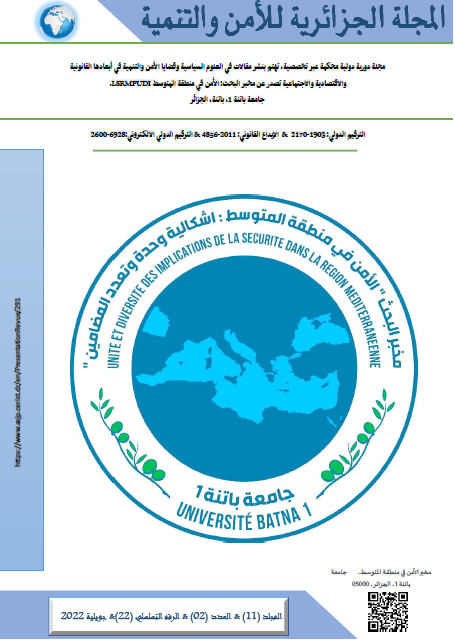التنشئة السياسية لحركة الإخوان المسلمين وتأثيرها على أحداث الربيع العربي في مصر
DOI:
https://doi.org/10.59791/arsd.v11i2.3168الكلمات المفتاحية:
Political Socialization، Islamic Movements، the Muslim Brotherhood، Egypt، the Arab Springالملخص
ساهمت أحداث الربيع العربي في تغيير الخارطة السياسية للوطن العربي، من بينها سقوط النظام المصري؛ وصعود الإخوان المسلمين إلى الحكم، فقد استطاع الإخوان نتيجة تكوينهم المنضبط والمنظم؛ تأطير المحتجين، والمحافظة على الثورة؛ حتى سقط النظام السياسي. إلا أن طبيعة التنشئة السياسية للإخوان المتسمة بالانعزالية والسرية؛ ساهمت في اتساع الهوة بين الإخوان المسلمين وبين الأحزاب السياسية القائمة في ظل غياب الحوار. ما أدى إلى ظهور موجة من الاحتجاجات ضد الإخوان المسلمين، واتخاذ الشارع كساحة للصراع، وبدوره قام الجيش باستغلال الفرصة وأطاح بالإخوان المسلمين بمباركة الأحزاب السياسية الأخرى وقوى المجتمع المدني، وسيطرته من جديد على الحكم في مصر.The events of the Arab Spring contributed in changing the political map of the Arab world, including the fall of the Egyptian regime and the rise of the Muslim Brotherhood to power. Because of their disciplined and organized composition, The Muslim Brotherhood was able to frame the protesters, preserve the revolution until the political system fell. However, the isolationist and secretive nature of the Brotherhood's political socialization has contributed in widening the gap between the Muslim Brotherhood and the existing political parties. This led to the emergence of a wave of protests against the Muslim Brotherhood, and take the street as a conflict area. In turn, the army took advantage of the opportunity to overthrew the Muslim Brotherhood, with the blessing of other political parties and civil society forces, and regained its control over the government in Egypt.

